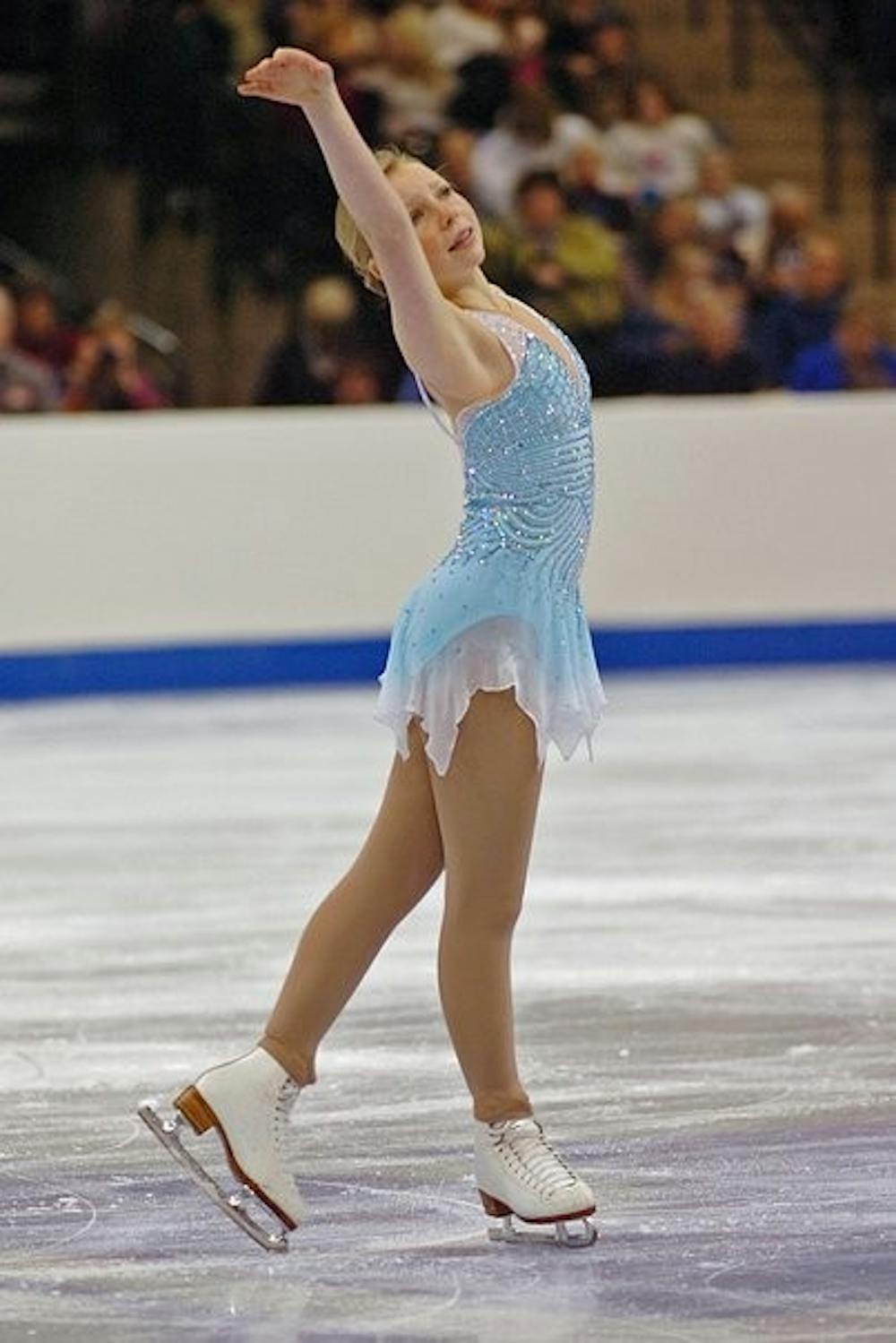A hallway in the BC Place Stadium is awash with navy puffer jackets and knit beanies. A choir of voices inside the stadium chant “USA! USA!” In the hallway, athletes jump around, ready to make their entrance to the opening ceremony at the 2010 Winter Olympics.
Rachael Flatt stands among the other Team USA athletes. She is a senior in high school and a competitive figure skater about to be swept into a moment she’ll remember forever.
“It was definitely one of the highlights of my life,” Flatt said.
Flatt left skating in 2014 while attending Stanford University. While she said the transition out of skating was challenging, her biology and psychology classes began leading her toward a new passion.
“I’ve always been interested in medicine, and sports medicine and sports psychology, having spent so much time in those respective areas as an athlete,” Flatt said. “When I started doing research my senior year of college, I started seeing a lot of parallels in the lab I was in, and I guess I should say the ‘lack of’ resources available to athletes.”
Flatt understood the prevalence of eating disorders among athletes, especially within the skating community. She said several of her peers suffered from eating disorders and poor body image, due to the “aesthetic nature” of the sport.
Now she is a Ph.D. student under Dr. Cynthia Bulik, the founding director at the UNC Center of Excellence for Eating Disorders. Alongside Apple, uBiome, Recovery Record and the National Institutes of Health, the Binge Eating Genetics INitiative (BEGIN) study aims to predict when participants are most likely to binge or purge based on readings from Recovery Record for Apple Watch.
Flatt and Bulik share a love of skating. Bulik, who skated as a child and picked it back up in adulthood, won bronze in a partner skate at the 2012 Adult National Figure Skating Championships. They met while planning a continuing education course for the Professional Skaters Association on body image. When Bulik announced she would be taking a graduate student in the upcoming year, Flatt applied and was accepted.
“Our goal is to develop treatments that, based on people’s data from the app and Apple Watch, can predict AHEAD OF TIME, when they are at risk for binge eating or purging and helping them to stop the behavior before it occurs,” said Bulik in an email. “We call it a “just-in-time” treatment and is made possible by integrating technology into our standard treatments for eating disorders.”



